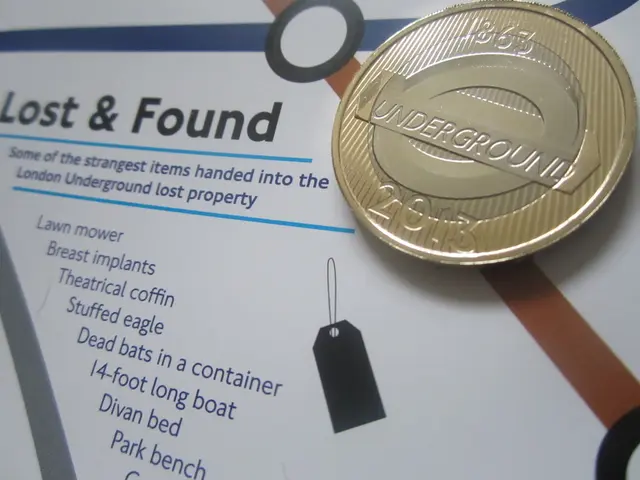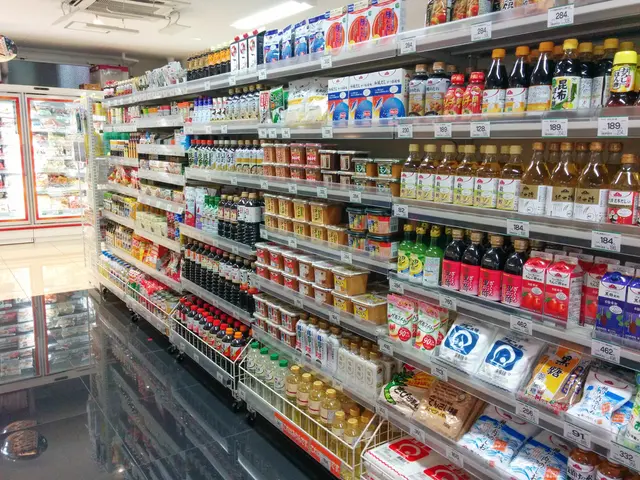UAE's CEPA Program intensifies global trade connections with 26 significant trade accords
The United Arab Emirates (UAE) has been making significant strides in its trade relations and economic growth through its Comprehensive Economic Partnership Agreements (CEPAs). These agreements have been instrumental in reducing trade barriers, expanding market access, and boosting non-oil trade and investment flows.
One of the key benefits of these CEPAs is the substantial tariff liberalization and trade barrier reduction. For instance, the Mauritius–UAE CEPA immediately liberalized tariffs on about 6,700 products, making trade easier and cheaper.
The agreements have also expanded market access for goods and services. UAE exporters now enjoy favorable terms in partner markets such as Mauritius, the Philippines, India, and more. Similarly, foreign investors find it simpler to enter the UAE and regional markets.
These CEPAs have had a positive impact on the UAE's economy, with the India-UAE CEPA nearly doubling bilateral merchandise trade from USD 43.3 billion in 2020-21 to USD 83.7 billion in 2023-24. The UAE-Philippines CEPA is forecast to add USD 2.4 billion to UAE GDP by 2032 and increase exports to the Philippines to USD 7.62 billion.
The CEPAs also support the UAE's efforts to diversify its economy beyond hydrocarbons. They align with strategies to strengthen manufacturing, logistics, ICT, financial services, and clean energy sectors. Abu Dhabi's economic reforms and infrastructure investments further boost sectors like AI, smart infrastructure, and industrial real estate.
The agreements also empower Small and Medium Enterprises (SMEs) and enhance private sector engagement. They open new service sectors and create cross-border business opportunities, benefiting UAE-based SMEs and attracting foreign direct investment.
The CEPAs have also strengthened the UAE's trade relations, deepening bilateral ties with diverse partners across Africa, Asia, and ASEAN. This reinforces the UAE's position as a global trade and investment hub.
By the end of 2024, UAE exports to India surged 75%, and non-oil trade grew by 20.5%. Negotiations on six additional CEPAs have been finalized, with signings expected soon. The UAE's CEPA programme is a key driver in broadening the nation's trade partnerships.
The CEPA programme is also driving sustained economic growth in the UAE. Six of the UAE's CEPAs have officially come into effect, while 14 others are undergoing technical and ratification procedures. By the end of the first quarter of 2025, the UAE signed five new CEPAs with Malaysia, New Zealand, Kenya, Ukraine, and the Central African Republic.
The UAE continues to enhance its foreign trade performance as the CEPA programme accelerates. The CEPA programme supports the "We the UAE 2031" agenda, targeting AED4 trillion in total non-oil foreign trade and AED800 billion in non-oil exports by 2031.
The UAE has signed a total of 26 CEPAs with strategically important countries and international blocs by the end of the first quarter of 2025. Trade with countries like Georgia, Turkiye, and Indonesia has seen remarkable growth. Talks between the UAE and Japan are set to conclude before the end of 2025.
The UAE's CEPA agreements are intended to unlock fresh opportunities for the country's private sector and business community. They are designed to strengthen the UAE's trade and investment footprint across dynamic economies. Benefiting sectors under the CEPA programme include logistics, clean energy, advanced technology, financial services, agriculture, and sustainable food systems.
In summary, the UAE's CEPAs drive economic growth by expanding trade volumes, diversifying the economy beyond hydrocarbons, enhancing the competitiveness of the private sector, and fostering stronger international economic partnerships. The CEPA programme supports the UAE's ambition to become a leading global trade powerhouse.
- The Comprehensive Economic Partnership Agreements (CEPAs) in the UAE have been a significant catalyst for business investment, particularly in sectors like manufacturing, logistics, ICT, financial services, and clean energy.
- The CEPAs have facilitated easier and cheaper trade, as shown by the substantial tariff liberalization and trade barrier reduction in agreements like the Mauritius–UAE CEPA.
- The UAE's CEPA programme has been instrumental in strengthening the country's position as a global investment and trade hub, deepening its relationships with diverse countries, including Kenya, Malaysia, New Zealand, and Ukraine.
- The CEPA agreements empower Small and Medium Enterprises (SMEs) and increase cross-border business opportunities, contributing to the UAE's goal of becoming a leading global trade powerhouse as outlined in the "We the UAE 2031" agenda.




